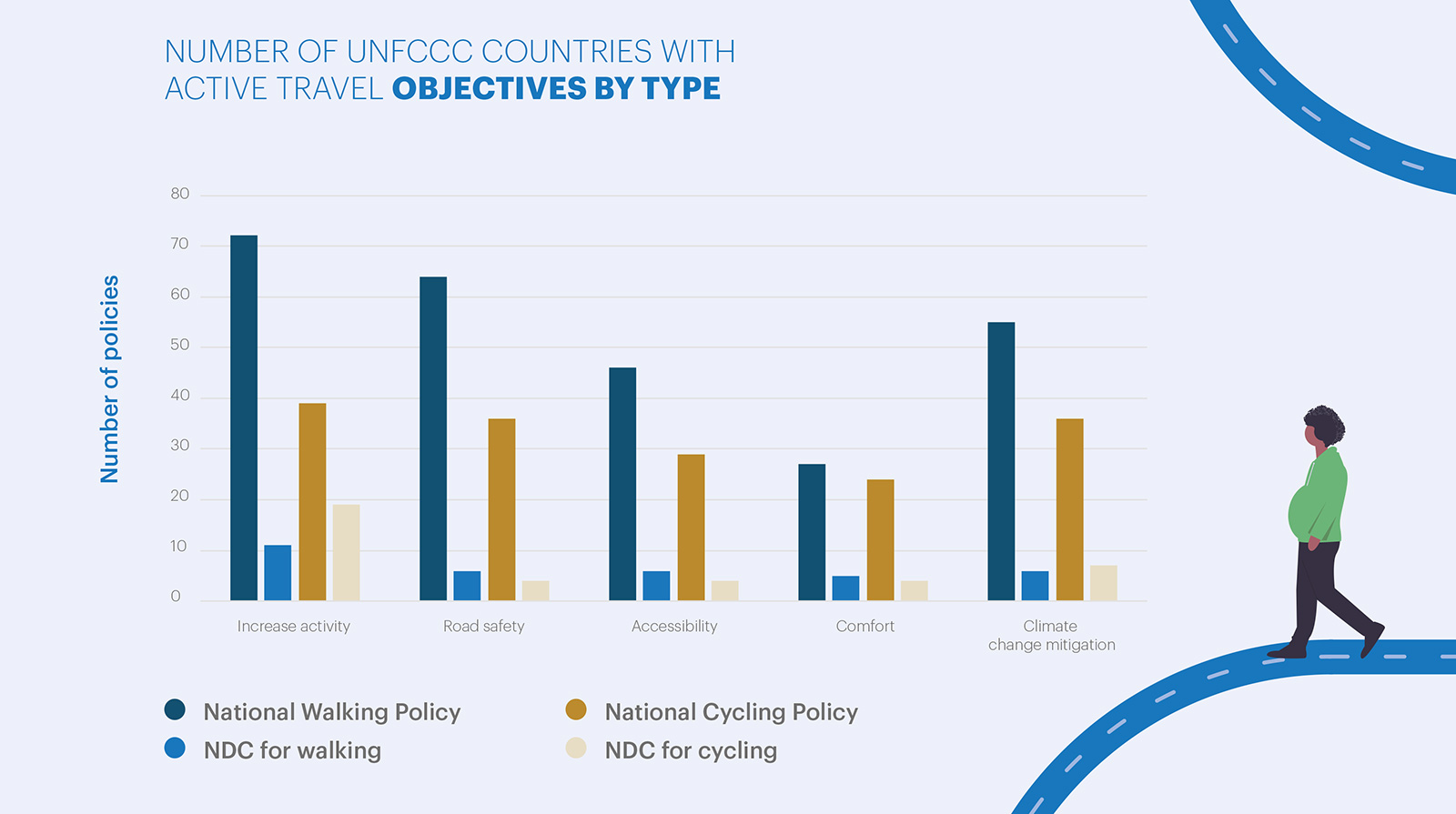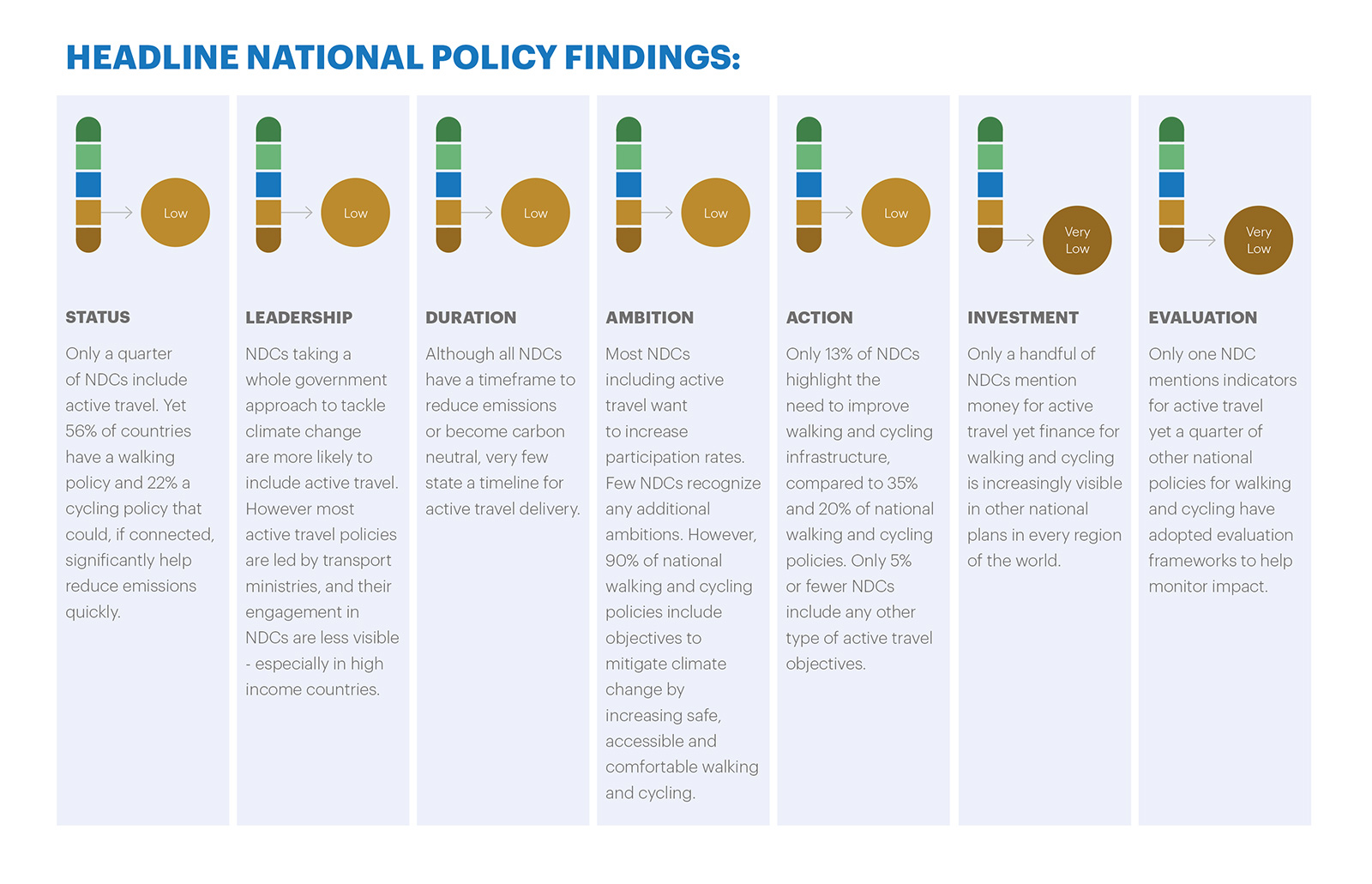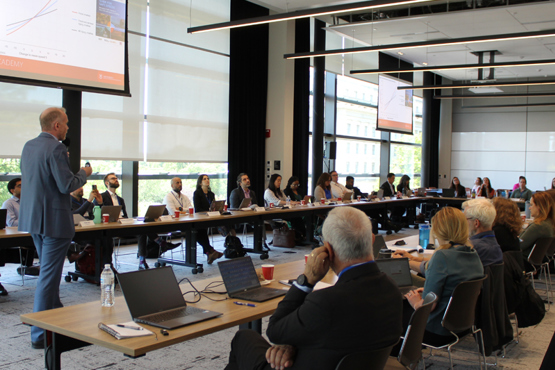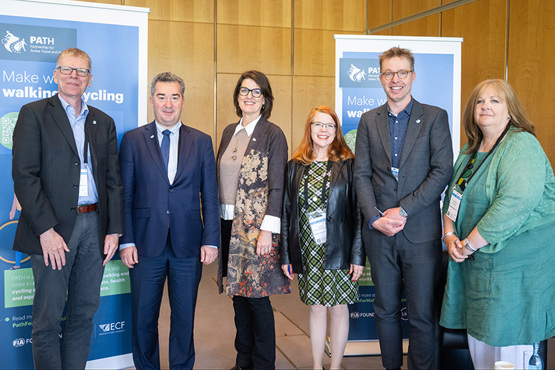Country climate plans fail to address walking and cycling says PATH Report, supported by FIA Foundation

Globally, walking and cycling have been undervalued as a key part of action on the climate emergency, according to a new analysis and report by the Partnership for Active Travel and Health (PATH), supported by the FIA Foundation.
The report, National Policies for Walking and Cycling in all 197 UNFCCC countries, found active travel is significantly undervalued in Nationally Determined Contributions (NDCs). NDCs are comprehensive climate plans that countries are adopting as pledges to achieve the Paris climate agreement. The report is a breakthrough in understanding national active travel policy and the role of walking and cycling policy in climate policies under the UNFCCC framework.
The report highlights the growing momentum for cycling and walking, yet a lack of joined-up policy means countries have failed to truly unlock the benefits of active travel. Two-thirds of countries may have active travel policies in place, yet much more ambition, action and investment is needed to unlock benefits for climate targets.
Just eight countries have consistently linked national walking and cycling policies with their UN climate goals. Further, all those countries, with the exception of Singapore, are low- or middle-income countries, including Bangladesh, Bhutan, Colombia, Costa Rica, Ethiopia, Rwanda and Uganda.

The key findings of the report highlight that only a quarter of NDCs include active travel, yet 56% of countries have a walking policy and 22% of countries have a cycling policy. Connecting NDCs with these policies could help to quickly reduce transport-related emissions. High-income countries have largely failed to engage with active travel in their NDCs and policies are currently focused on electrification of vehicles, meaning the existing, affordable and quick solution of active travel is not prioritised. Around 40% of countries have yet to include active travel in their NDC or any visible policy – largely low and middle-income countries with a high share of active travel. Most of the 52 countries that have incorporated active travel in their NDCs need to strengthen their ambitions, actions, finance and evaluation frameworks.
The report also includes an Active Travel NDC Template to support national governments to include walking and cycling in their NDCs. It sets targets for walking, cycling and public transport to halve transport emissions by 2030 with 20 actions for governments including: infrastructure; campaigns; land use planning; integration of active travel with public transport and capacity building.
PATH (Partnership for Active Travel and Health) is a coalition of leading NGOs calling on governments and cities to make a real commitment to walking and cycling as a key solution to the climate, health and equity challenges they face. It is coordinated by a core group of Walk21, the European Cyclists’ Federation and the UN Environment Programme with coordination work funded by the FIA Foundation.

Sheila Watson, FIA Foundation Deputy Director, said: “The only way to achieve the global commitments made within the Paris Agreement is for countries to recognise and unlock the benefits of walking and cycling. The PATH Report show that, alarmingly, only a few countries have wholeheartedly embraced the active mobility agenda, comprehending its pivotal role in addressing climate issues, improving air quality, and promoting equity. Notably, high-income countries, major contributors to the climate crisis via transport emissions, have fallen far short in meaningfully embracing solutions that encourage a transition from personal vehicles to active mobility.”
In a year where nations will gather for a ‘stocktake’ of progress on climate action in the UAE for the COP28 climate summit, PATH is calling for more coherent and ambitious walking and cycling policies to cut climate emissions. Active travel delivers more than any other transport mode when it comes to sustainable development and climate action. If more people were enabled to walk and cycle safely, it could reduce transport emissions by as much as 50%.
Jim Walker, Director of Walk21, who led the development of the report said: “This breakthrough research demonstrates that we need much greater ambition when it comes to unlocking active travel policies to meet climate targets. All countries stand to benefit in embracing active travel, with walking and cycling delivering on more sustainable development goals than any other transport mode. Our Active Travel NDC Template is well placed to support national government ambitions to fully unlock the potential of active travel.”



